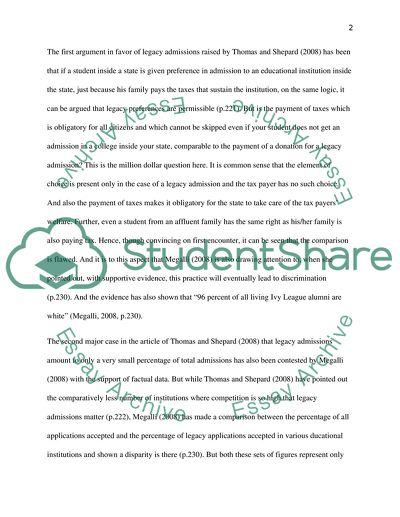Cite this document
(“The Legacy Admissions Essay Example | Topics and Well Written Essays - 1000 words”, n.d.)
The Legacy Admissions Essay Example | Topics and Well Written Essays - 1000 words. Retrieved from https://studentshare.org/education/1581793-argument-synthesis-see-detailed-instructions-below
The Legacy Admissions Essay Example | Topics and Well Written Essays - 1000 words. Retrieved from https://studentshare.org/education/1581793-argument-synthesis-see-detailed-instructions-below
(The Legacy Admissions Essay Example | Topics and Well Written Essays - 1000 Words)
The Legacy Admissions Essay Example | Topics and Well Written Essays - 1000 Words. https://studentshare.org/education/1581793-argument-synthesis-see-detailed-instructions-below.
The Legacy Admissions Essay Example | Topics and Well Written Essays - 1000 Words. https://studentshare.org/education/1581793-argument-synthesis-see-detailed-instructions-below.
“The Legacy Admissions Essay Example | Topics and Well Written Essays - 1000 Words”, n.d. https://studentshare.org/education/1581793-argument-synthesis-see-detailed-instructions-below.


